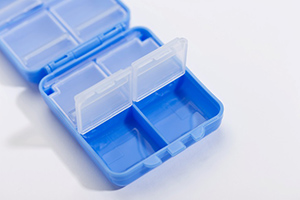Take a Summer Break? Medication Holidays for Your Child

Some parents decide on a medication holiday during the summer months or during an extended holiday, when their children affected by ADHD don’t need to focus intently, as they do during school.
A medication holiday is a planned period of time, for medical or evaluation purposes, when prescribed medication therapy is put on hold for a limited time. Medication breaks should be undertaken only with the guidance of your child’s prescribing medical practitioner.
Because stimulant medications are fast-acting and fast to leave the body, there are usually no withdrawal symptoms.
Is a medication holiday right for your child? If so, what are the potential impacts and what should you consider before your child takes a break from medication management?
Why take a medication holiday?
Some people experience side effects from stimulant medications. Side effects can include a loss of appetite, sleep problems, delayed growth, and headaches, among others.
Sometimes, in order to understand whether your child’s symptoms are related to medication or other factors, his symptoms need to be compared to his baseline medical and behavioral profile. When your child was diagnosed, you likely consulted a medical professional to discuss treatment options. That doctor established a baseline profile for your child. Using your child’s baseline to compare with his current symptoms can help guide you and his doctor explore medication and behavioral treatment options, along with any complementary interventions.
If your child is taking stimulant medication as part of his treatment plan and experiencing side effects from the medication, ask his doctor whether it would be helpful for him to take a break from the medication. Breaks can be done when demand is less high: over a weekend, during a weekly school vacation or summer break, or any combination of these. They can help relieve side effects of medication, or demonstrate the need for continued medication if your child’s symptoms increase dramatically.
Are medication holidays recommended?
A recent review of studies that focused on the long-term outcomes of using stimulants to treat ADHD symptoms found they are a safe and effective treatment when used optimally. Optimal treatment includes careful dosage for the patient and consistent follow-up and dose adjustment when needed. For more information about effectively managing ADHD medications for young children and adolescents, visit Managing Medication.
There are benefits and drawbacks to medication holidays for parents to keep in mind.
"By taking kids off during summers, you do allow some room so that a growth spurt can occur," says Josephine Elia, an attending psychiatrist at Children’s Hospital of Philadelphia, in a discussion with Newsweek. She recommends medication holidays to help with physical development.
Once medication management is halted, ADHD symptoms return and can cause difficulties during the summer.
“Kids who are being treated for ADHD do better in more than just the classroom,” says child and adolescent psychiatrist Alan Ravitz, MD, in an interview the Child Mind Institute. “Medication has to do with managing behavior in a variety of different circumstances.”
What should I consider?
Weigh the benefits of alleviating medication side effects versus the risk of untreated symptoms:
|
|
|
|
Keep in mind what the potential outcomes of a medication holiday may be for your child. His ADHD symptoms that have been controlled by the medication may increase significantly. This might result in problems during summer activities or care, or at home, with challenges related to social skills.
If your child will be attending a summer camp or other extra-curricular activity that will require focus and social interaction, there may be a negative impact on his happiness and self-esteem as he encounters an increase in symptoms.
Finally and most importantly, consider your child’s health care professionals’ advice.
Time to take a holiday?
The bottom line: You know your child’s needs better than anyone. If the side effects of stimulant medication are significant—for example, he is not eating well or eating far too little food because the medication impacts his appetite—it may help to take a break. If you understand the likely impact of taking a break and that the benefits will outweigh the challenges, discuss the options with your child’s health care provider.
Has your child had a medication holiday? How was the experience?
Are you considering a medication holiday for your child this summer? Is that a good idea, and what benefits and risks should you expect?
